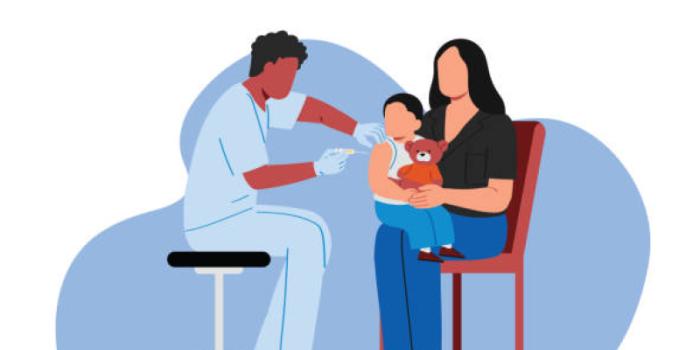An independent review of recent decisions made by the US Centers for Disease Control and Prevention’s (CDC’s) Advisory Committee on Immunization Practices reveals that its policymaking maturity rating fell from an overall score of 100% to 58% from April to September this year.
“Since 1964, the Advisory Committee on Immunization Practices (ACIP) has shaped US vaccine policy but recently underwent significant structural and procedural changes affecting recommendation quality,” the authors wrote.
The evaluation of ACIP processes, deliberations, and votes, published yesterday in Vaccine, was penned by 14 former ACIP voting members working as the Immunization Scientific Advisory Collaborative. The new group is one of a number of organizations that have stepped in to produce evidence-based evaluations of current vaccine policies and identify areas requiring procedural and scientific correction.
“States have also started to issue their own vaccine recommendations, leading to fragmentation of the vaccine landscape,” the authors noted.
In June, all 17 sitting ACIP members were fired and were later replaced with new members—including vaccine skeptics and those with limited or no relevant experience—by US Health and Human Services (HHS) Director Robert F. Kennedy Jr.
Chaos, missteps mark September meeting
In addition to using a standardized tool for assessing national vaccine advisory groups’ development and functionality to examine ACIP policymaking, the authors also analyzed evidence presented, processes, and vaccine recommendations.
Over the study period, ACIP’s policymaking maturity rating dropped from an overall score of 100% (considered “leading edge”) to 58% (“developing” or “intermediate) (range, 25% to 75%).
Voting members appeared to have discussed issues behind closed doors, which is inappropriate and procedurally against the rules.
The most affected subindicators were membership, disclosures and conflict-of-interest processes, independence from members’ primary workplaces, access to external experts, decision-making processes, government consideration and solicitation, and implementation, all of which plummeted to “basic” or “developing.”
The report cited multiple transparency violations during the September ACIP meeting, including the failure to consult liaison organizations with medical expertise in vaccine implementation and posting the agenda late and then making unannounced, unjustified changes to it.
“Poorly framed policy questions were followed by a lack of systematic application of standard protocols (e.g., GRADE methodology and Evidence to Recommendations framework),” the authors wrote. “Voting members appeared to have discussed issues behind closed doors, which is inappropriate and procedurally against the rules.”
Specifically, the committee recommend shared clinical decision making for COVID-19 vaccines, restricted access to combined first-dose measles, mumps, rubella, and varicella (MMRV) vaccines, and postponed voting on removing the birth dose of hepatitis B vaccine.
‘A decline in credibility’
Although the vote to require a prescription for COVID-19 vaccines failed, “it revealed a concerning lack of understanding regarding national prescribing practices and the potential impact on vaccine access,” the report said. “In 2024-2025, 90% of adults who received a COVID-19 vaccine did so at a pharmacy, and this requirement could have restricted their access.”
The authors also noted that, during the vote to remove the recommendation for the MMRV vaccine for children younger than 4 years, several members said they didn’t understand what they were voting for.
ACIP has experienced a decline in credibility following a series of missteps and a shift in emphasis from vaccine policy development to concerns about vaccine-related harms.
“Although 85% of children already receive separate MMR and varicella vaccines according to data from the 2023 CDC National Immunization survey, the vote to remove MMRV vaccine as a first dose for children under age four years may disrupt clinical practice by eliminating a combined-dose option preferred by some parents to reduce the number of injections,” the report said.
The authors identified four concerns that they said limit ACIP’s ability to make effective vaccine policy recommendations: (1) removal of choice for previously recommended vaccines, limiting opportunities to improve health; (2) focus on theoretical vaccine harms using low-quality data; (3) loss of vaccine science and clinical expertise; and (4) less transparency and independence.
“Discussions reflected poor understanding of process, inadequate grasp of science, and a focus on low-quality safety data, excluding well-recognized components and standards for vaccine policy making,” the team wrote.
“Once a leading authority in US public health prevention policy, ACIP has experienced a decline in credibility following a series of missteps and a shift in emphasis from vaccine policy development to concerns about vaccine-related harms,” they concluded. “To maintain public trust and ensure effective immunization policy, ACIP must restore rigorous, evidence-based, and independent decision making.”













